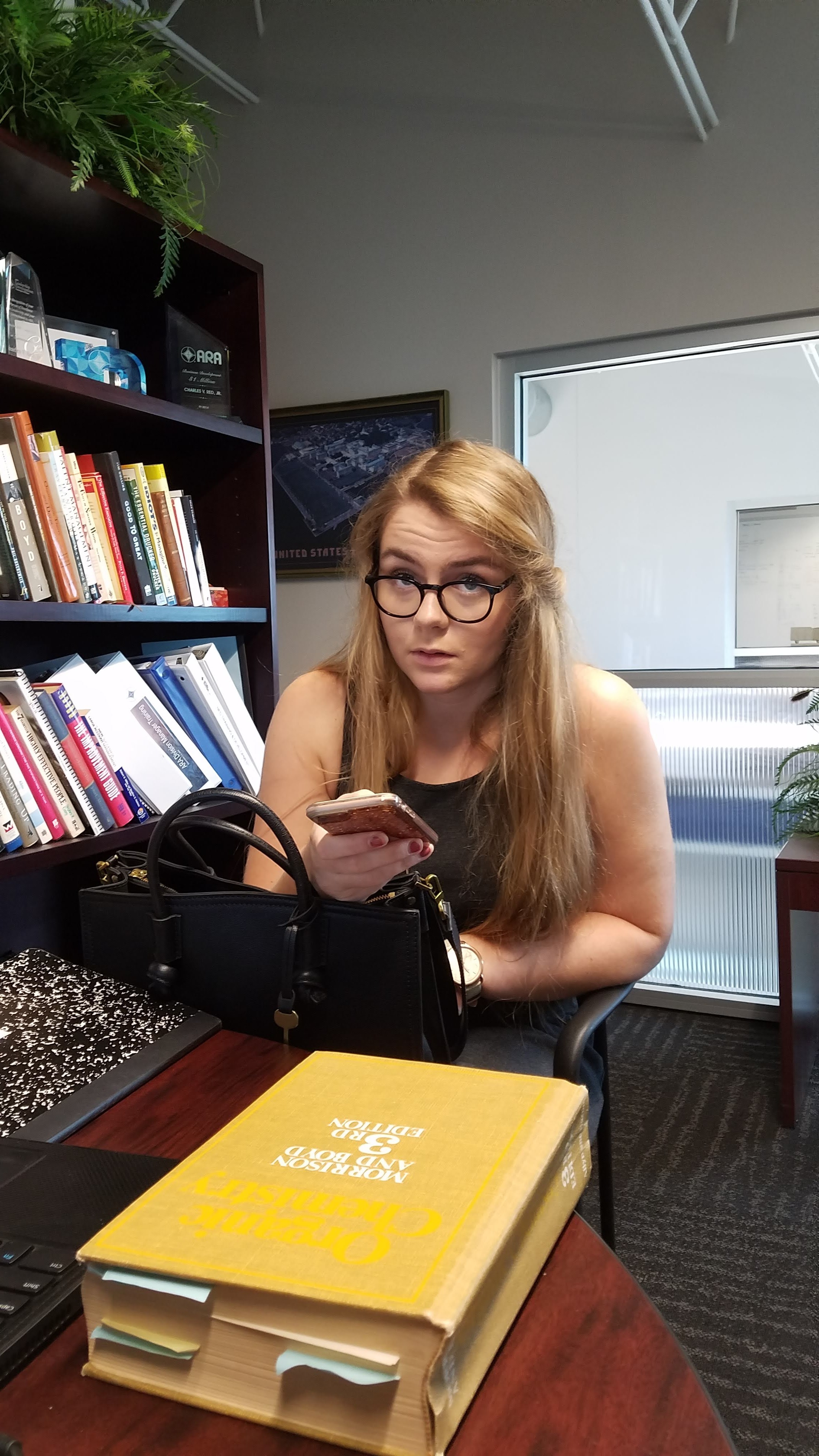
Message from the Executive Committee
We probably wouldn’t describe the quarter that went by as “calm” as far as the Southeast was concerned, what with two category 4 hurricanes significantly altering the landscape of the Carolinas and the Florida panhandle. As with all major natural disasters agricultural production has been adversely impacted. Again, resilience in the face of uncertainty, is the magic word that comes to the forefront, and we are glad that resilience is incorporated into the SPARC mission. Not sure who this saying can be attributed to but someone rightly said “….the antidote to uncertainty is not certainty but clarity….”. And clarity comes through the process of scientific research, education, and stakeholder engagement. As we move into the next quarter and prepare for the 2018-19 production season let’s continue to forge ahead with these principles in mind.
As always please remember the power of communication. Do not hesitate to reach out to the executive committee or your team leads with suggestions to help enhance SPARC’s output.
SPARC Stories
A Brief Description of the Capstone Project
During their last semester of undergraduate studies, chemical engineering students take the senior design (capstone) course that offers them an opportunity to integrate the knowledge they acquired during their studies, including mass and energy balances, reaction engineering, transport phenomena, and numerical methods. The themes of the capstone are selected by the instructors of the course and reflect current trends in various chemical industries, including bioeconomy technologies, such as carinata, biomass, and algae. Students are divided into small groups and each group is asked to select a process/technology of interest and conduct a techno-economic analysis using the engineering software ASPEN as a modeling and optimization tool. The work involves literature research and contacts with industry experts to collect information and data related to the process of interest.
At the end of the semester, the students present their findings in the form of a final written report, a poster, and an oral presentation. A typical capstone project report covers the following key sections:
- Market analysis
- Block flow diagram
- ASPEN modeling
- Process flow diagram
- Materials balance
- Technical performance and optimization
- Economic feasibility analysis
- Sensitivity analysis
- Risk analysis
- Environmental impact analysis
- Safety and operability analysis
Posters are judged by invited faculty and industry professionals, whereas presentations are also attended by the public at large.
The main objectives of the capstone project are to give students an opportunity to apply and integrate their undergraduate knowledge and to get prepared for the types of multidisciplinary projects and challenges they are likely to encounter during their professional careers.
Behind the Scenes with SPARC’s Social Scientists
The complex issues facing the world’s nations today, from sustainability to national security, demand the integration of diverse perspectives to generate more resilient solutions. SPARC is by no means the first bioenergy project to unite a multidisciplinary team under a common goal. However, we strive to become an example of success by placing emphasis on team integration and interpersonal dynamics. My name is Benjamin Christ, and I work alongside Dr. Wendy-Lin Bartels of the University of Florida as SPARC’s resident social scientists. The rest of the project knows us for planning “team synergy” opportunities at our annual meetings, and many have spent significant time entertaining our need to ask endless questions. But first and foremost, we are tasked with understanding factors that influence producers’ willingness to adopt carinata into their crop rotations. In a previous article, I discussed the groundwork of our research approach: key informant interviews with our stakeholders, who ranged from SPARC scientists, representatives from Agrisoma and Applied Research Associates, government officials, and Extension faculty. The knowledge gleaned from these interactions gave us the information we needed to approach the most important stakeholders involved…the producers themselves!
Before I get to that, what exactly do social scientists contribute to SPARC? Like our colleagues, Wendy-Lin and I are concerned with generating products and carrying out activities that add value to the overall project. We do, however, live in a slightly different reality than our peers. Oftentimes we deal with the intangible, such as the fears, hopes and dreams, and concerns of SPARC’s varied stakeholders regarding the establishment of carinata in the Southeast United States. Careful observation precedes brainstorming a specific research approach, and we spend significant time filtering appropriate questions to ask in interviews and focus groups. We tap into our skills as empathic listeners to get to the core of what our respondents want to express, and through repeated review of responses, we draw parallels and highlight important points that should be relayed back to specific SPARC teams. The iterative nature of our research is essential, in that each step builds new understanding of previous responses and sets the stage for better understanding in the future. I often visualize our work as connecting the essential components of a complex machine, a task at which I would have zero skill in real life. If this machine represented carinata’s successful expansion in the Southeast, then its functionality would depend on balancing the inputs from components like science, private industry, and producers’ needs. Wendy-Lin and I are the social engineers that observe the connections and feedback of this machine, understand how its components influence each other, and make recommendations for change when appropriate.
Back to the most important component of all, the producers and their perspectives of carinata in their production systems. In late August of this year, I traveled to Alabama and North Florida to speak with several producers that have experience growing carinata, independent of their success and attitude toward the crop. Capturing a wide range of opinions based in varied experiences helps us deliver a more holistic, nuanced report to our peers in SPARC regarding the needs and concerns of producers. Later this year, we will continue interviewing producers in Florida and Georgia. All our efforts will culminate in the creation of what we are calling the Carinata Community of Practice (CCoP), a learning and social platform that will allow producers with all levels of experience with carinata to interact with both each other and knowledgeable professionals. We aim for the CCoP to eventually be managed by the producers themselves, ensuring ownership in the creation of learning opportunities and its endurance as a driver of producer adoption beyond SPARC.
In the meantime, Wendy-Lin and I are content operating in our limbo between the exciting developments of our SPARC colleagues and the hopes and concerns of our stakeholders. We are proud to be part of such a diverse team and to have the opportunity to interact with so many remarkable individuals in the Southeast United States. Do you have more questions about our work? Feel free to message me at jbenjamin.christ@ufl.edu or Wendy-Lin at wendylin@ufl.edu.
SPARC Member Spotlight
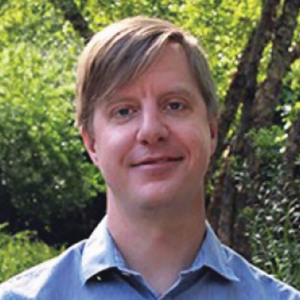 Dan Geller Is faculty at the College of Engineering at the University of Georgia. He has an undergraduate degree in Biochemistry and an MS and PhD in biological engineering from UGA as well making him a “triple dawg”. Dr. Geller has a strong track record in the discipline of bioenergy research with tremendous experience in various aspects of the biofuel/bioenergy space. This includes basic understanding of biofuel production and processes to policy and markets as well as socio-economic implications of bioenergy production and adoption. These attributes make him an obvious best choice for the role of extension co-lead that he is currently playing in SPARC. In addition, Dan leads and collaborates on several projects that have a focus on agriculture, forestry and climate science related extension and outreach strategies.
Dan Geller Is faculty at the College of Engineering at the University of Georgia. He has an undergraduate degree in Biochemistry and an MS and PhD in biological engineering from UGA as well making him a “triple dawg”. Dr. Geller has a strong track record in the discipline of bioenergy research with tremendous experience in various aspects of the biofuel/bioenergy space. This includes basic understanding of biofuel production and processes to policy and markets as well as socio-economic implications of bioenergy production and adoption. These attributes make him an obvious best choice for the role of extension co-lead that he is currently playing in SPARC. In addition, Dan leads and collaborates on several projects that have a focus on agriculture, forestry and climate science related extension and outreach strategies.
Dan is from Waukesha, Wisconsin and chose UGA over GA tech where he was originally supposed to go. Another interesting fact about Dan is his serious passion for music, serious enough for him to start and perform in a band while at UGA. He started a record label named Kindercore and serves as the CTO of Kindercore Vinyl. Dan extends his advocacy for clean energy and green products to his record label that is working with engineers and chemists to replace petroleum based vinyl with a “green“ vinyl. SPARC is truly fortunate to have the all-in-one biochemist-engineer-DJ on its team.
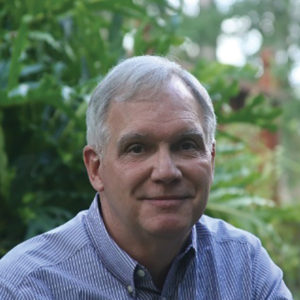 Ed Coppola is the principal engineer and group leader for the Better Fuels Group at Applied Research Associates (ARA) Inc. since 1995. As a chemical engineer with specialized training in fuels he is responsible for directing R&D, testing and engineering efforts in alternative energy, renewable fuels and physical, chemical and biological process development for multiple applications. Some of his important accomplishments at ARA in the area of biofuels include leading the production of 150,000 gallons of renewable jet and diesel for certification testing by the US Navy, managing and leading construction of a 100 barrel/day biofuels demonstration system, managing and leading a $4M biofuels development project sponsored by the US Air Force. He chairs the ASTM task force for certification of jet fuel produced by the patented ARA conversion process called catalytic hydrothermolysis and is the co-inventor of several patents in this field. Prior to his joining ARA, Ed had a successful career with the US Air Force.
Ed Coppola is the principal engineer and group leader for the Better Fuels Group at Applied Research Associates (ARA) Inc. since 1995. As a chemical engineer with specialized training in fuels he is responsible for directing R&D, testing and engineering efforts in alternative energy, renewable fuels and physical, chemical and biological process development for multiple applications. Some of his important accomplishments at ARA in the area of biofuels include leading the production of 150,000 gallons of renewable jet and diesel for certification testing by the US Navy, managing and leading construction of a 100 barrel/day biofuels demonstration system, managing and leading a $4M biofuels development project sponsored by the US Air Force. He chairs the ASTM task force for certification of jet fuel produced by the patented ARA conversion process called catalytic hydrothermolysis and is the co-inventor of several patents in this field. Prior to his joining ARA, Ed had a successful career with the US Air Force.
Ed and his colleagues were instrumental in introducing carinata to the US Southeast by putting Agrisoma in touch with University of Florida in the early years of this collaboration. In SPARC, Ed leads the fuels and coproduct development team. He actively pursues commercialization opportunities of carinata fuel and coproducts in the Southeast through several ventures and collaborations with public and private entities. His team’s focus continues to be to make carinata fuel and coproducts price competitive to petroleum.
Originally from West Virginia, Ed lives close to most of his immediate family in Panama City, FL. He is a devoted granddad to 8 grandkids, and enjoys astronomy, photography and woodwork on the side.
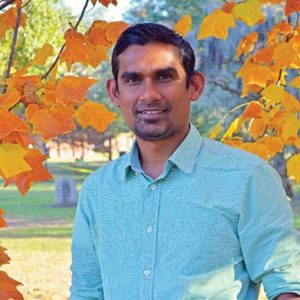 Ramdeo Seepaul is a Research Assistant Scientist at the University of Florida’s North Florida Research and Education Center. Prior to this he was a postdoctoral associate at NFREC working on a 1.5 mil bioenergy grant funded by the FL Department of Agriculture. Dr. Seepaul (Andy) has thorough knowledge and unmatched experience in carinata production agronomy and abiotic stress physiology, nutrient management and drought tolerance. His previous experience in bioenergy crops helped bring a broader bioenergy feedstock production perspective to the carinata program. He co-leads the SPARC feedstock development team which is one of the largest teams in SPARC with 41 people. He efficiently steers the large and diverse group through project design, implementation, data collection and reporting. He is extremely methodical in his work and a strong advocate of extending scientific research through outreach to the broader community.
Ramdeo Seepaul is a Research Assistant Scientist at the University of Florida’s North Florida Research and Education Center. Prior to this he was a postdoctoral associate at NFREC working on a 1.5 mil bioenergy grant funded by the FL Department of Agriculture. Dr. Seepaul (Andy) has thorough knowledge and unmatched experience in carinata production agronomy and abiotic stress physiology, nutrient management and drought tolerance. His previous experience in bioenergy crops helped bring a broader bioenergy feedstock production perspective to the carinata program. He co-leads the SPARC feedstock development team which is one of the largest teams in SPARC with 41 people. He efficiently steers the large and diverse group through project design, implementation, data collection and reporting. He is extremely methodical in his work and a strong advocate of extending scientific research through outreach to the broader community.
Seepaul was born and raised in Bath, Guyana in a farming community engaged in cash crop farming. Strongly influenced by the hands-on experience on his family farm followed by exposure to crop and animal production through his undergraduate years, he pursued a Masters and Doctoral program in agronomy at Mississippi State University. He has been a toastmaster’s club member for several years and served as an office bearer for his club. He enjoys the outdoors and will practically try a hand at anything given the opportunity.
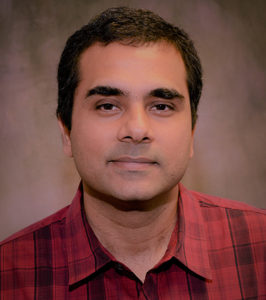 Puneet Dwivedi is an Associate Professor of Sustainability Sciences at the University of Georgia’s Warnell School of Forestry and Natural Resources. He specializes in forest policy and economics, sustainable bioenergy development, and interaction of society with natural resources. After finishing his doctoral studies at the University of Florida’s School of Forest Resources and Conservation in 2010, Dr. Dwivedi worked as a postdoctoral research associate at the Yale Climate and Energy Institute where he worked on utilizing southern yellow pines for sustainable bioenergy development in the United States. He also developed a research program focusing on adoption of improved cooking stoves in India. Continuing his postdoctoral career at the Energy Biosciences Institute, University of Illinois Urbana-Champaign, Dr. Dwivedi analyzed economics and life-cycle impacts of utilizing cellulosic feedstock for ethanol production in the United States.
Puneet Dwivedi is an Associate Professor of Sustainability Sciences at the University of Georgia’s Warnell School of Forestry and Natural Resources. He specializes in forest policy and economics, sustainable bioenergy development, and interaction of society with natural resources. After finishing his doctoral studies at the University of Florida’s School of Forest Resources and Conservation in 2010, Dr. Dwivedi worked as a postdoctoral research associate at the Yale Climate and Energy Institute where he worked on utilizing southern yellow pines for sustainable bioenergy development in the United States. He also developed a research program focusing on adoption of improved cooking stoves in India. Continuing his postdoctoral career at the Energy Biosciences Institute, University of Illinois Urbana-Champaign, Dr. Dwivedi analyzed economics and life-cycle impacts of utilizing cellulosic feedstock for ethanol production in the United States.
His current projects include research on non-state private governance of forestry resources, participation of African Americans in state and federal incentive programs and the impact of land use changes on water quality in Floridian Aquifer. In SPARC Dr. Dwivedi leads the system metrics team which deals with the various aspects of within and beyond farm gate sustainability of carinata feedstock, fuel and bioproducts production and distribution. Dr. Dwivedi manages the forest sustainability lab at the University of Georgia where currently 10 graduate students are actively exploring frontiers of research at the interface of sustainability and natural resources. Dr. Dwivedi has published extensively in the areas of bioenergy sustainability and policy with over a 1000 citations to his credit.
In his spare time, Dr. Dwivedi likes to read mostly to keep himself abreast of current affairs. He also enjoys doing woodwork. Dr. Dwivedi lives in Watkinsville, GA with his wife of 10 years (Richa) and daughters, Aanya and Esha.
Graduate Student Spotlight
 Mahesh Bashyal is a doctoral student at the West Florida Research and Education Center at Jay, FL working under the guidance of Dr. Mike Mulvaney. Prior to coming to the University of Florida, Mahesh completed a Master’s degree in agriculture at the Northwest Missouri State University and an undergraduate degree in entomology from the Nepal Agricultural Research Council in Kathmandu. His projects have ranged from integrated pest management through mass rearing of predators and parasitoids, to studying the effect of pre-emergent herbicides in soybeans. He was program coordinator for a government sponsored project in Nepal focusing on developing agriculture as a subject for the school curriculum in remote parts of that country. That role encouraged him to broaden his skill sets and understanding of the science of agriculture. Currently he is working on understanding nutrient dynamics of carinata particularly in the context of southeast soils and climate. Mahesh has maintained an exemplary academic record that has won him scholarships and awards throughout his academic career. His extracurricular activities include services to the Northwest chapter of UNICEF at which he currently holds the position of secretary. Mahesh is excited to be a member of SPARC working in a unique regional public-private partnership on a topic of global importance.
Mahesh Bashyal is a doctoral student at the West Florida Research and Education Center at Jay, FL working under the guidance of Dr. Mike Mulvaney. Prior to coming to the University of Florida, Mahesh completed a Master’s degree in agriculture at the Northwest Missouri State University and an undergraduate degree in entomology from the Nepal Agricultural Research Council in Kathmandu. His projects have ranged from integrated pest management through mass rearing of predators and parasitoids, to studying the effect of pre-emergent herbicides in soybeans. He was program coordinator for a government sponsored project in Nepal focusing on developing agriculture as a subject for the school curriculum in remote parts of that country. That role encouraged him to broaden his skill sets and understanding of the science of agriculture. Currently he is working on understanding nutrient dynamics of carinata particularly in the context of southeast soils and climate. Mahesh has maintained an exemplary academic record that has won him scholarships and awards throughout his academic career. His extracurricular activities include services to the Northwest chapter of UNICEF at which he currently holds the position of secretary. Mahesh is excited to be a member of SPARC working in a unique regional public-private partnership on a topic of global importance.
Coming from Nepal, a nation known for its national parks, wildlife and snow rivers, Mahesh enjoys hiking, river rafting and biking. He enjoys playing ping-pong, cricket, soccer and volleyball. Having spent over two years in the US he has now come to enjoy football, baseball and outdoor grilling.
 Luiza Brabo-Catala is a Master’s student at the University of South Florida’s Patel School of Sustainability. She is pursuing a degree in global sustainability with a focus on sustainable energy. Luiza’s project is under the guidance of Dr. George Philippidis in the Biofuel and Bioproducts lab. Luiza has an undergraduate degree from University of Sao Paulo, Brazil where she worked on peanut and its potential for bioenergy production. She has a strong background in biofuel and bioproducts research including succinic acid production from sweet sorghum bagasse, second generation ethanol from bagasse and so on. In SPARC she works on developing several value added chemicals from carinata. She coordinates student projects as part of SPARC’s education and workforce development efforts and conducts research on the enzymatic hydrolysis of biomass carbohydrates to fermentable sugars for microbial production of organic acids, which can serve as renewable building blocks with promising market potential. She hopes to apply these methods to carinata meal to recover additional value added products
Luiza Brabo-Catala is a Master’s student at the University of South Florida’s Patel School of Sustainability. She is pursuing a degree in global sustainability with a focus on sustainable energy. Luiza’s project is under the guidance of Dr. George Philippidis in the Biofuel and Bioproducts lab. Luiza has an undergraduate degree from University of Sao Paulo, Brazil where she worked on peanut and its potential for bioenergy production. She has a strong background in biofuel and bioproducts research including succinic acid production from sweet sorghum bagasse, second generation ethanol from bagasse and so on. In SPARC she works on developing several value added chemicals from carinata. She coordinates student projects as part of SPARC’s education and workforce development efforts and conducts research on the enzymatic hydrolysis of biomass carbohydrates to fermentable sugars for microbial production of organic acids, which can serve as renewable building blocks with promising market potential. She hopes to apply these methods to carinata meal to recover additional value added products
When not in the lab, Luiza likes to experiment with and cook vegan cuisine and uses her fermentation skills for baking and making novel beverages. She also likes to re-watch her favorite TV show “Parks and Recreation”.
Events
Fuel and Coproduct team lead Ed Coppola was invited to speak to a group of engineers and scientists at the Bio systems Engineering Department at Auburn University as part of their Brown Bag Seminar Series. Dr. Austin Hagan (SPARC feedstock development team member at Auburn University) coordinated the visit. Ed spoke on the supercritical water process for the conversion of lipids into drop-in fuels and chemicals.
Upcoming events
SPARC representation at the Agronomy Society of America (ASA) Meetings-Baltimore, November 4-7, 2018
Dr. Ian Small will speak on the Status, opportunities and challenges of carinata production in the Southeast at a symposium on Oilseed Crops for Biofuel Feedstock co-organized by Dr. Ramdeo Seepaul
Other SPARC speakers at the ASA include Dr. Ramdeo Seepaul, Dr. Mike Mulvaney and graduate students Theodor Stansly and Arun Jani
CAAFI Biennial General Meeting: Washington DC, December 4-6, 2018: David Wright will represent SPARC on a panel on Real World Supply Chain Development


